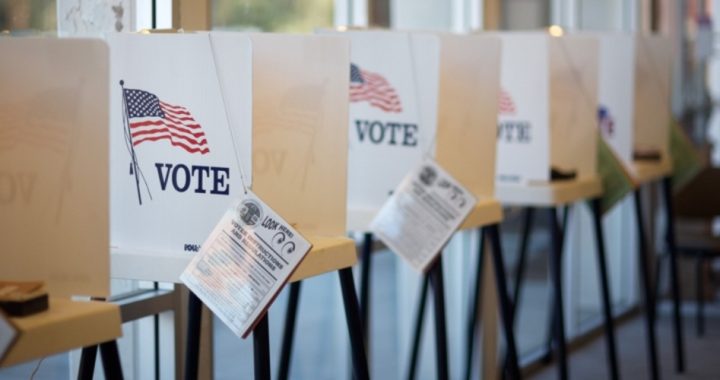
After two counties — Wilcox and Perry — produced an unusually high number of absentee ballots in last Tuesday’s election, the Alabama secretary of state, John Merrill, has opened an investigation of potential voter fraud, particularly in Wilcox and Perry counties.
One week after the July 18 run-off primary election, Merrill explained why he is concerned. “This is a thing that you have to remember, if you have 19 absentee ballots being mailed to the same address and it’s a standalone structure that may or may not be occupied, that is a cause for a red flag. We had a situation in a municipality with more than 100 absentee ballots mailed to the same location.”
The two counties are in a rural area of the state, noted for its poverty, known as “the Black Belt.” Because of the region’s high number of black Americans, many Americans mistakenly think that the term “Black Belt” has something to do with race. In reality, the term originally referred to an area of Alabama with dark, rich soils, and is part of the larger Southern Black Belt, which extends from Texas to Maryland. Because of the rich soil, it was home for the antebellum plantation system of agriculture. Once one of the wealthiest per capita regions of the United States, the region was economically devastated by the Civil War and the subsequent end of slavery, and a decline in the productivity per acre of the farm lands, causing cotton production to lose much of its economic vibrancy. The boll weevil only added to the region’s economic devastation.
In a strongly “red” or Republican state, these counties with lower population and mostly lower incomes are the heart of what Democratic Party strength exists in the state.
Merrill’s investigation is expected to center on “absentee broker operations.” This corrupt practice is characterized by the exchange of gifts or cash in exchange for absentee ballots. Merrill expressed particular concern about a situation in Perry County, where he alleged that his election observers were threatened with arrest by an unnamed county commissioner.
“I had a county commissioner threaten me and my election observers saying that if they didn’t let the votes count, they would have them arrested in Perry County,” Merrill said. “I told them that he was not going to have anyone arrested and that we would follow the law and that everyone who participated would be following the law.”
There were more than 200 absentee ballots returned in the county that “did not meet” the state’s constitutional standards, Merrill said, noting that some of the ballots were returned unsealed, indicating that they could have been tampered with.
Merrill also expressed some concern about Wilcox County. “I went to three polling sites (last Tuesday) in Wilcox and there were 64, 80, and 80 people who voted at them. That’s 224 people who went to the polls but there are more than 500 people who voted absentee. It’s an issue and it’s a concern because we want people to vote and want people to vote absentee, but we want them voting the right way.”
Similar spikes in absentee voting were noted in other Black Belt counties, including Greene, Dallas, Lowndes, and Macon, but not all Black Belt counties experienced such spikes.
Alabama election officials have struggled with concerns about abuse of absentee ballots for many years. Beth Chapman, who preceded Merrill as secretary of state, persistently raised concerns about absentee voter fraud as well, with cases of citizens allegedly being given rock cocaine, loads of gravel, and the like in exchange for the absentee ballots.
This story has relevance to last year’s special election for U.S. Senate when Judge Roy Moore, the Republican nominee, lost to Democrat Doug Jones by a narrow margin. After the election, Moore contested the race, arguing that it was marred by vote fraud. Secretary of State Merrill, however, said that such allegations in that contest could not be proven.
John Eidsmoe, senior counsel of the Foundation for Moral Law and an Alabama resident, told The New American, “Most of the allegations [in Alabama] of fraud come out of these counties.” He noted that there were “lots of allegations in the Moore race,” adding “I think [Secretary of State] Merrill would have liked to have found something” to prove the allegations, if they were true, but finally concluded that he could not.
Considering that our political differences can be settled peacefully through the ballot box, it is imperative that the election process be as free as possible from corruption. Certainly, changing an election outcome can change the course of history, such as when the campaign of Lyndon Johnson won a disputed election for U.S. Senate in Texas in 1948. It is now conceded that Johnson really lost the election to Governor Coke Stevenson in the Democratic primary. Still, because of election fraud, Johnson was declared the winner and went to the U.S. Senate. Had he not been a senator, he would have never been vice president with Kennedy, and upon Kennedy’s assassination in 1963, president of the United States.
This is why voter ID laws are so important — elections are important. Another concern for the integrity of the election process is the rise of “Internet voting.” The opportunity for rigging an election conducted on the Internet is obvious, and without paper ballots, the chances of proving election fraud are dramatically diminished.
Hopefully, whatever election fraud has happened in Alabama, and in any other state, can be uncovered, and successfully prosecuted, so as to discourage future fraud.



